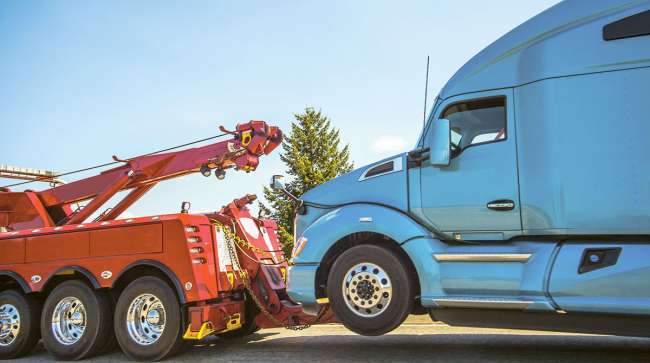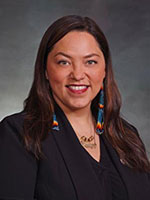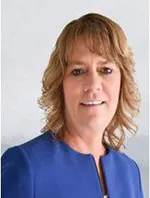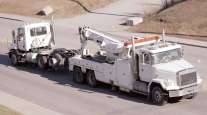Staff Reporter
Colorado Cracks Down on Predatory Towing With New Law

[Stay on top of transportation news: Get TTNews in your inbox.]
A broad new law to end predatory towing practices takes effect Aug. 7 in Colorado, legislation that was backed by a state senator whose vehicle was wrongfully towed last summer.
Several consumer protection measures to safeguard vehicle owner rights and create new obligations for towing companies are contained in the law enacted May 30 by Gov. Jared Polis.
It authorizes the Colorado Public Utilities Commission (PUC) to deny or refuse to renew a towing carrier permit if a tower was convicted of a felony or a towing-related offense within the past five years, has failed to satisfy a PUC-imposed civil penalty or if the PUC determines it would be detrimental to the public for a tower to have a permit.
Soon the new law will establish a rebuttable presumption that the public should be protected from a towing carrier with a history of willfully and repeatedly violated state towing laws.
Towing carriers will be forbidden from patrolling or monitoring properties to enforce parking restrictions on behalf of the property owner. Towing law violations will be defined as deceptive trade practices contrary to the Colorado Consumer Protection Act, which authorizes the state attorney general or a district attorney to file a legal civil action seeking penalties of at least $10,000.
The towing carrier regulation legislation (HB24-1051) passed during the Second Regular Session of the 74th Colorado General Assembly, which convened Jan. 10 and adjourned May 8. The bill’s sponsors were all Democrats: Reps. Andrew Boesenecker and Tisha Mauro along with Sens. Julie Gonzales and Kevin Priola.

Gonzales
Gonzales, who represents Denver County, decided to take legislative action after she believed her vehicle was wrongfully towed last summer. Gonzales found towing laws were being ignored and needed strengthening.
“This bill ensures towing companies aren’t hiding the ball when it comes to telling people their options and rights under the law,” Gonzales said in May when the legislation breezed through the state Senate. “My hope is that with this bill we can better protect consumers and hold towing carriers responsible for following the law.”
The legislation also enjoyed widespread support among Democrat cosponsors: all 21 state representatives and 13 senators. Two cosponsors were Republicans, Sens. Bob Gardner and Jim Smallwood.
Soon a towing carrier must act within 48 hours of learning a vehicle was towed illegally to return that vehicle to where it was before (unless impractical or otherwise requested).
Colorado law will prohibit a towing carrier from nonconsensually towing a vehicle from private property unless the carrier has received permission from the property owner/agent within the last 24 hours. A towing carrier cannot be the agent of the property owner.

Mauro
The new law mandates towing permission to be documented and signed, and outlaws automated/preapproved towing permission. If a property owner would earn income from a nonconsensual tow, the towing carrier will be prohibited from making the tow but may authorize another tower to remove a vehicle. Towers will be responsible for the security and safety of the vehicles they remove.
The legislation also prohibits towing task force members (in regulatory agencies that give towing advice to the PUC) from voting either on towing rate-setting recommendations that would financially benefit that member or having a role in complaints if the member is involved in a towing-related dispute.
Another feature of the new law requires signs about nonconsensual towing be printed in English and Spanish.
Owners of nonconsensually towed vehicles will be able to retrieve their vehicles without paying full fees for a tow, and towers cannot require anyone to undergo any approval process other than signing an appropriate form to retrieve the vehicle.
Jeff Loftus of FMCSA joins TT’s Seth Clevenger to discuss the current outlook on ADAS technology and how it will affect the industry at large. Tune in above or by going to RoadSigns.ttnews.com.
The new law requires the PUC to impose a rule forcing towing carriers to provide any information needed to prepare state legislative reports as part of the towing-carrier permitting process. The information required may include the annual volume of tows by category, current pricing for all fees charged per category of towed vehicle and the number of tow trucks used by each carrier .
Mauro explained earlier this year that she supported the legislation because “towing companies have a massive advantage over everyday Coloradans, and we need to do more to level the playing field.”
She said the new law was meant to dismantle financial incentives for predatory towing practices such as patrolling parking lots and improves consumer protections through new towing transparency and oversight measures.
Want more news? Listen to today's daily briefing below or go here for more info:





